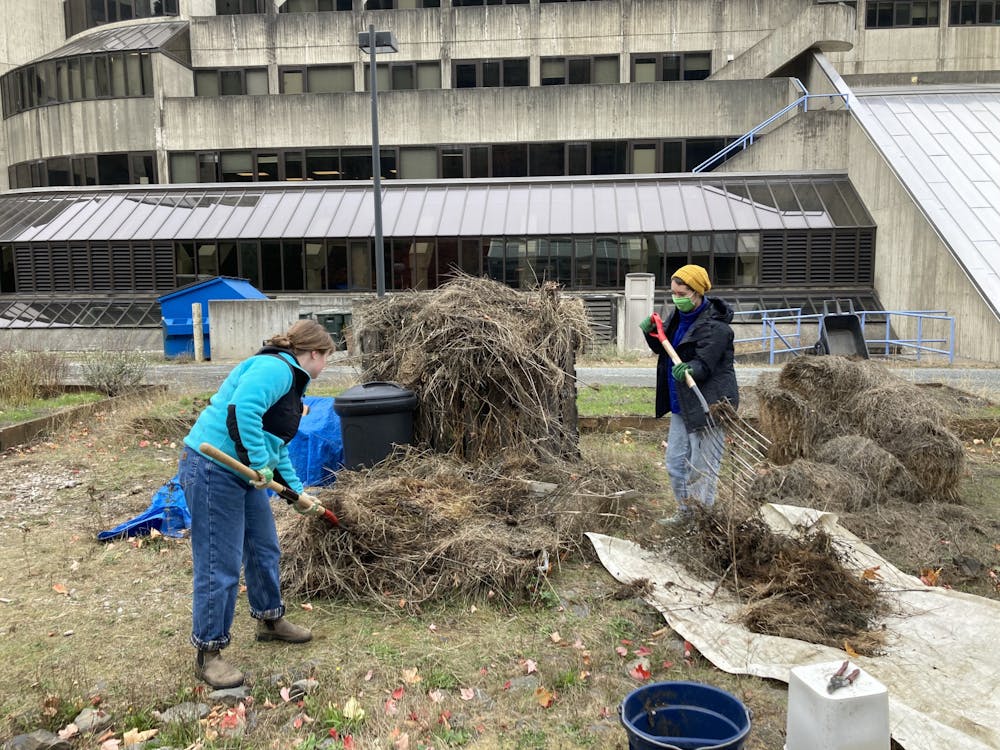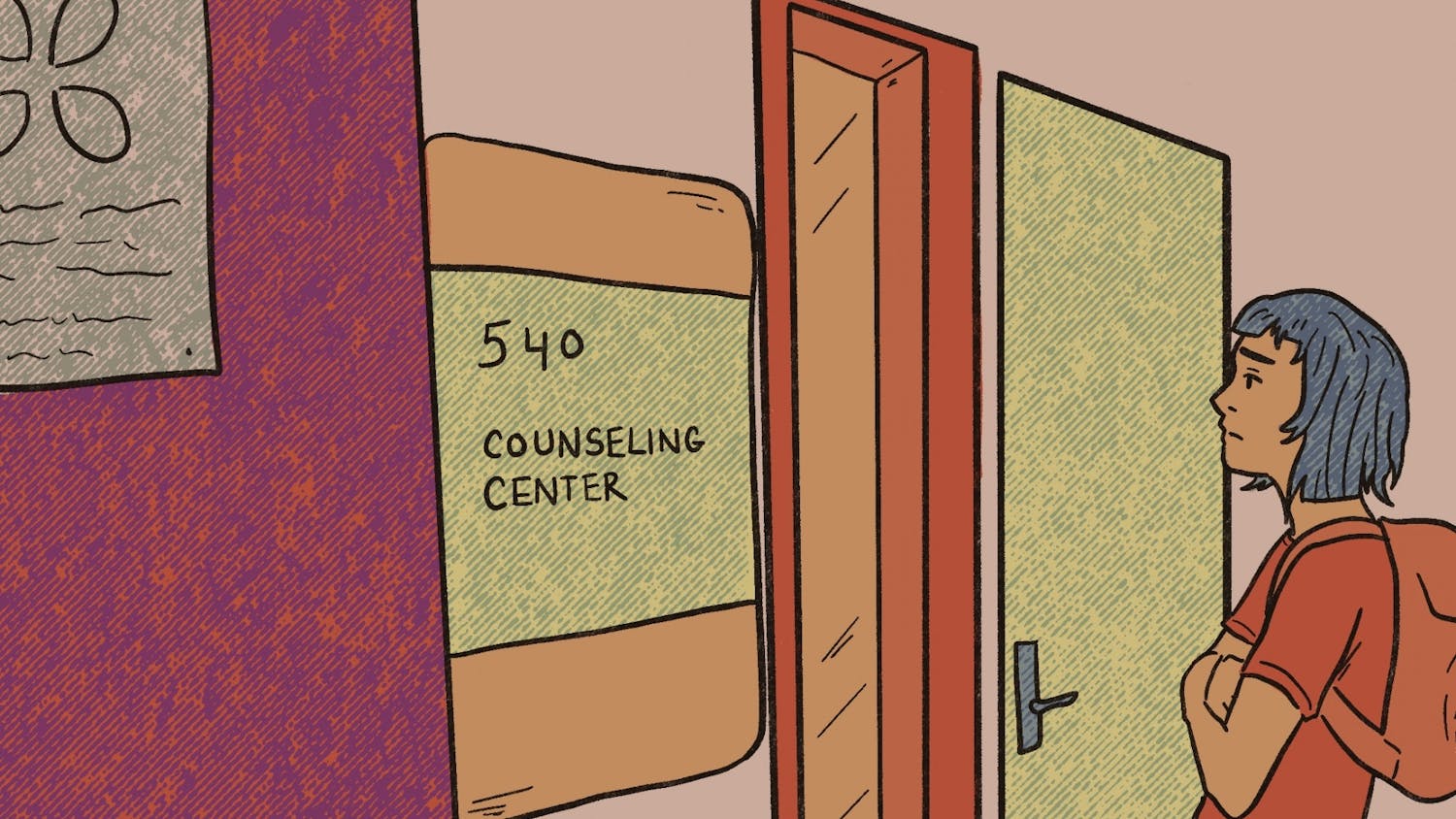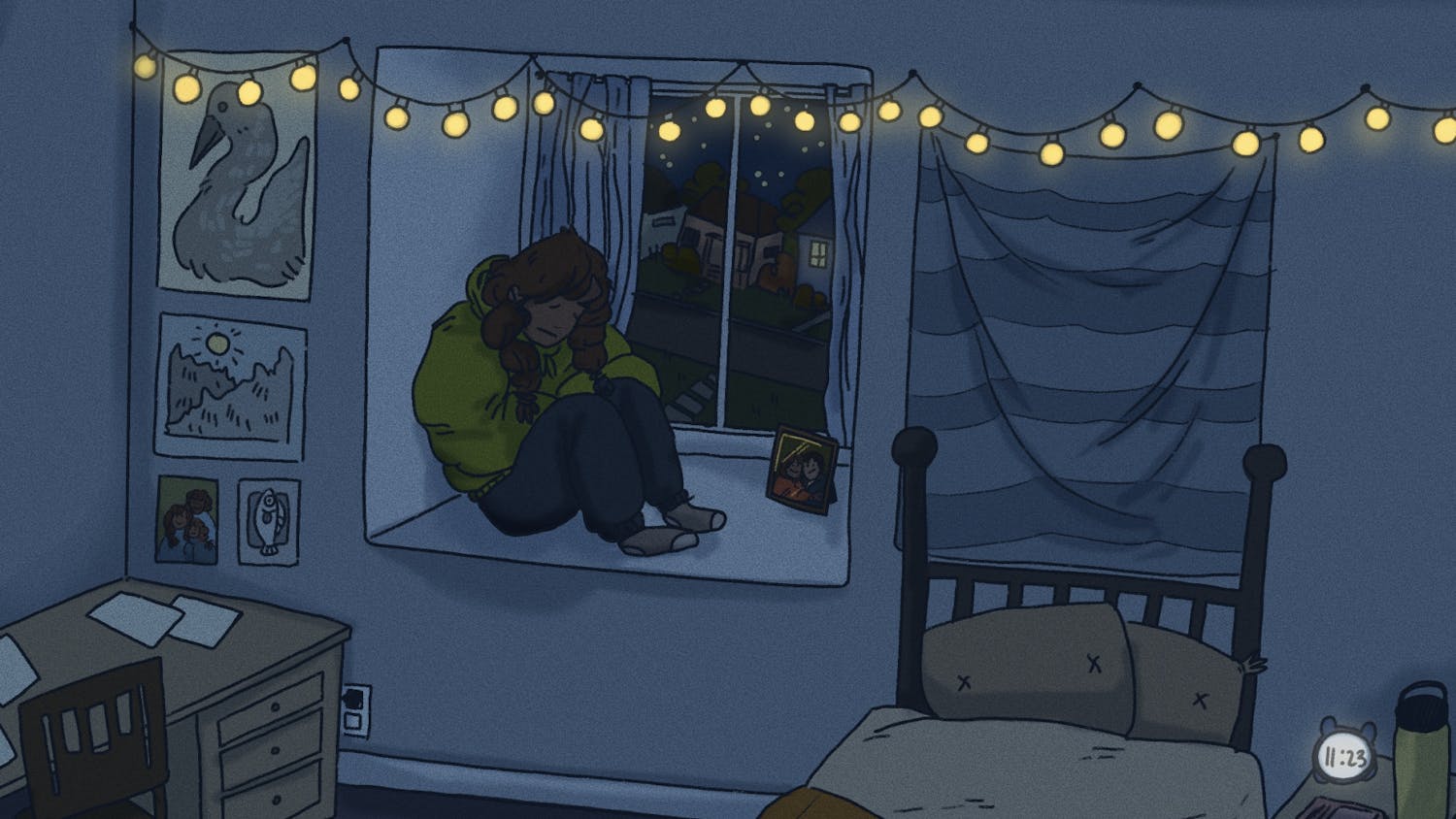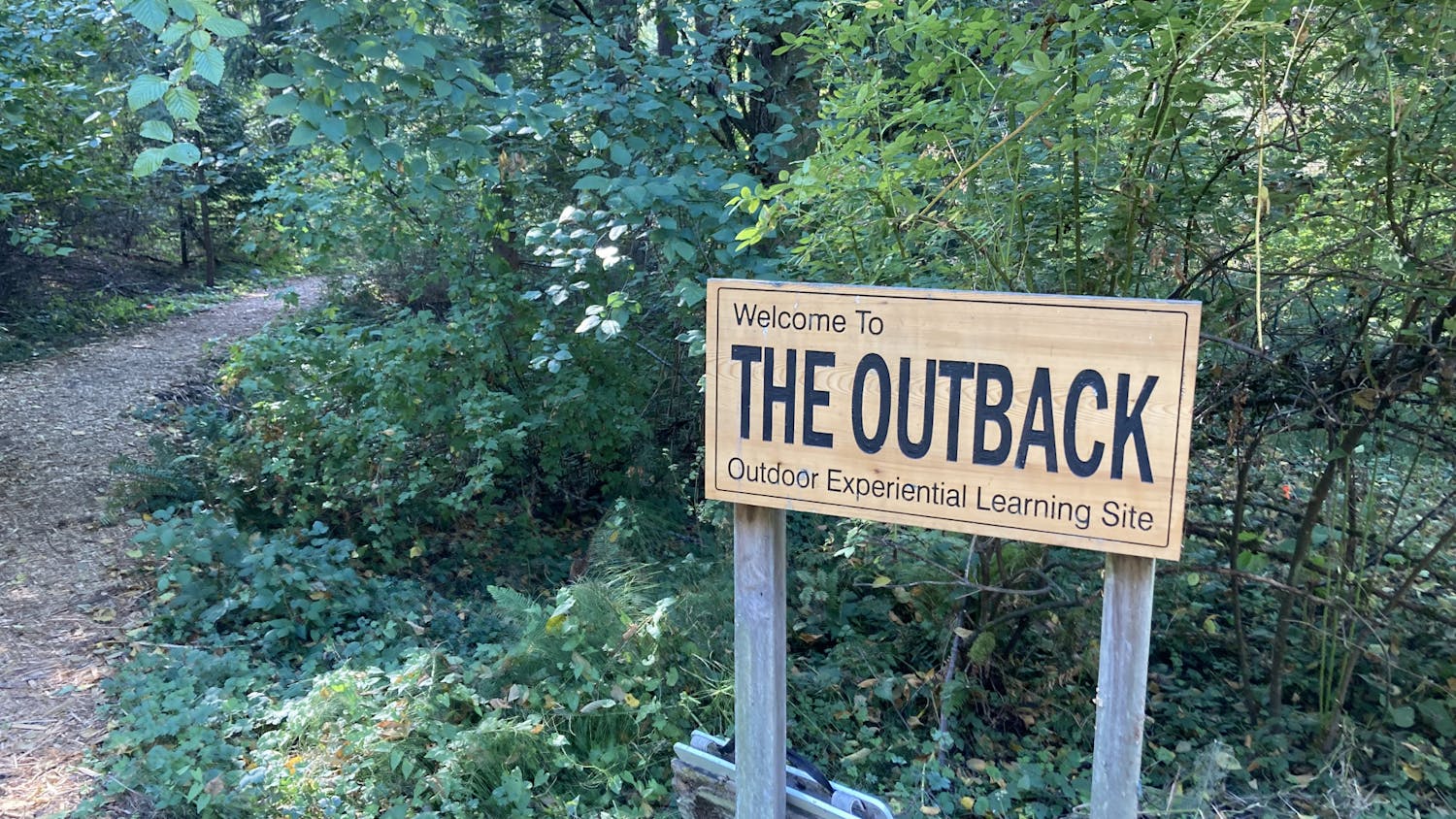Sitting behind Arntzen Hall on the campus of Western Washington University is a patchwork of garden spaces — small raised beds full of soil, a greenhouse, a patch of growing camas bulbs and a compost pile. As part of the university’s campus, the Arntzen Hall gardens are utilized by the College of the Environment for classes that teach hands-on horticulture and agriculture concepts.
This quarter, a group of students in the college’s agroecology and resilient communities class had the opportunity to transform one part of the gardens — the compost pile. Fourth-year students Ruby Gsellman, Ellie Currie, Sophia Reynolds and Nico Ryden decided to revamp a compost container in the gardens after tending to them during one class session at the beginning of their quarter.
“There was just this huge pile of brown debris, like yard waste, that was spilling out of this four-by-four, made-with-pallets cube,” Gsellman said. “It looked worth fixing up, especially since our class is kind of about being more efficient.”
Throughout the quarter, the group cleared the bin and organized the contents to become a functional source of compost. Their goal is to create a compost system that can turn food waste and yard scraps into material that will eventually amend the soil in the gardens, which Gsellman described as “tough.”
As seniors, the students are looking to find other students who are interested in continuing their work and caring for the gardens after they graduate.
“We're looking for people to help take over,” Gsellman said. “Accomplishing takes a little while, and since this is a group project that we started for a class like halfway through the quarter, there's definitely not enough time for actual composting to take place.”
Because the gardens are primarily used as a part of the coursework for environmental studies and science classes, Gsellman, Currie, Reynolds and Ryden see an opportunity for clubs and interested students to pick up the work of gardening when classes full of students aren’t tending to the space.
“The class learning experience has been pretty dominant there, but I think there's a lot of room for it to be used by other people in the off-seasons of those classes,” Currie said.
The students’ hope is that the space can become a year-round learning and harvest space, similar to the Associated Students’ Outback Farm. The Outback often has a waitlist for access to one of its community garden plots. Reynolds said the Arntzen Gardens could add accessibility for students who are on the waitlist or who want a space closer to the middle of campus to plant crops.
Reynolds also said she sees an opportunity for the gardens to provide additional food for students and the on-campus free pantries. Many of the crops that are planted by classes aren’t fully harvested by the time the quarter comes to an end.
“There are potatoes in [the gardens], there are radishes, there's kale,” Reynolds said. “Planting stuff like that and actually harvesting it and eating it would be awesome.”
Gsellman and Reynolds both noted that having students active in maintaining the gardens would mean less food waste, and more food for students to eat, grown right on campus.
“Students are often looking for ways to apply what they learn and are often more engaged in topics that really touch on some of their core values,” Abe Lloyd, a professor in the College of the Environment, said. “I think in general, a lot of the College of the Environment students are pretty interested in food as a nexus point between humans and our relationship with the environment.”
The group has created an Instagram page, which Reynolds said she hopes will attract more interested students who are willing to help. Reynolds said she’s already heard from some fourth-year College of the Environment students who are interested, but the main challenge is finding students from younger classes to pick up the work for the years after the group has graduated.
“If we want the gardens to flourish, it's gonna need more year-round work,” Gsellman said. “So, if we could have a student body interested in taking care of it between classes that are using it, it could be in better shape and also be a pretty significant learning opportunity.”






